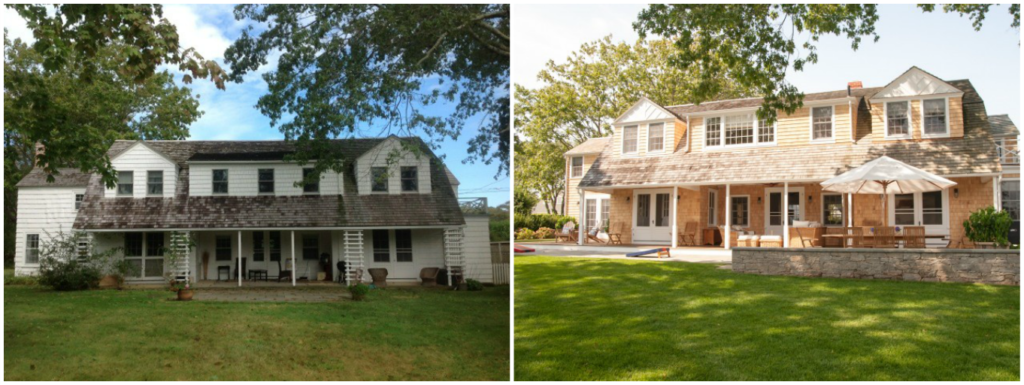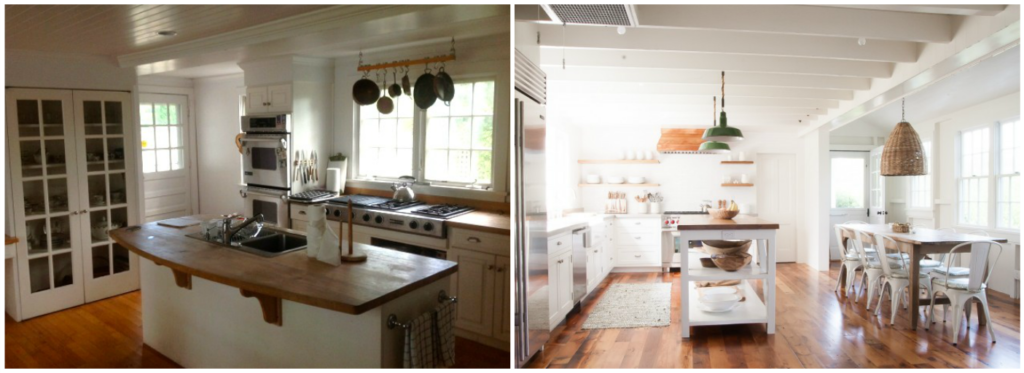According to a story on OceanViewRealty.com home prices on Cape Cod had returned to pre-recession levels by 2016. Within the last two years, those values have slowly increased, with many homes now worth more than they were before the “crash” that began in 2008. If you’re considering purchasing a home here, the return of a robust real estate market on the Cape may be pricing you out of finding something you love (or even like). And rising prices are not the only challenge in the current real estate climate on the Cape.
The December 2019 report issued by the Cape Cod & Islands Association of Realtors shows that the supply of available homes has dwindled, with 20% fewer single-family homes on the market in 2019 than in 2018.
Whether the limited supply of homes available or financial constraints are turning your search for a dream house into a nightmare, one path worth exploring might be the “fixer upper” route.

Reality Check
While shows on HGTV such as Love It or List It and the dearly departed Fixer Upper are great at providing a snapshot of just how much difference a renovation can make, they are not “reality shows.” They are slickly packaged 60 minutes of a process that has been completed at warp speed by seasoned professionals. Chip and Joanna may have a SWAT team of contractors on speed dial. You do not.
The financials in these programs are also often unrealistic. According to a story on HomeAdvisor.com, the average kitchen renovation in Boston is about $30,000. But that average includes all projects from which data is available. Would a minor renovation in a miniscule Southie condo, one that leaves existing cabinetry and appliances in place, cost the same amount as a complete “gut job” in a spacious home that incorporates new custom cabinetry and chef-grade appliances? Of course not! By the way, the average cost of a kitchen remodel in Texas, home of the famed Gaines duo? Half of what it is in Boston.
So before you begin to seriously consider buying a fixer upper, do a gut check, and review your finances. Do you have the assets that would allow you turn an ugly duckling into a swan? Also consider if it is feasible for you to live elsewhere while renovations are ongoing, or, will you be comfortable living in the home during construction?

The Pros
Without a doubt, the biggest pro of the fixer upper path is the ability to create exactly – or nearly so – what you and your family want. That countertop you’re not in love with or the less-than-ideal master closet situation in the move-in-ready house you’ve pondered are removed from the equation.
One thing that does ring true in home renovation “reality” shows is the lower return on investment with major home renovations than what we saw pre-recession. While doubling one’s money seemed a given in pre-recession home flipping shows, the dudes on Flipping Boston, which aired mid-recession, had to settle for a 20–30% ROI. Buying a fixer upper, one that has undergone a rigorous pre-sale home inspection “hopefully” removes the “can of worms” concern, is still an effective way to build equity in your home more quickly than relying solely on market appreciation. Your ability to look past the dated flooring and chopped-up floor plan in a diamond-in-the-rough and see potential can be a valuable commodity.

The Cons
Even if you have a good eye for the aesthetic aspects required to renovate a home, you can’t see what’s going on with a foundation. Or the wiring that’s hidden in the walls. Or the support beams that hold everything together. A home inspector can’t necessarily see everything either, which is why we added “hopefully” to the statement above.
Purchasing an older home, especially one with the sketchy maintenance record that earned it “fixer upper” status, invariably does include some level of “can of worms” potential. This potential increases exponentially with historic homes and homes in damp environments, both of which are prevalent on the Cape.
If at all possible, do an onsite inspection of the fixer upper you’re considering with a licensed building professional. They’ll see the home differently than a home inspector, and may identify additional pitfalls. They also have the training to see the potential in a home far better than even the biggest HGTV aficionado.
Finally, homes that have fallen down the fixer upper rabbit hole – those that are deemed too far gone by traditional banks – may require creative financing or a healthy bank balance to actually acquire them.
If you do your homework before signing on the dotted line, purchasing a fixer upper can be a smart path to finding the perfect home.
All photos via Remodelista.com.
